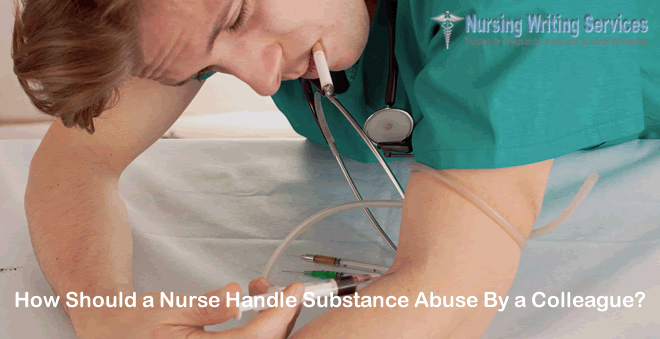
How Should A Nurse Handle Substance Abuse By A Colleague?
Substance abuse is a condition that requires treatment. Ironically, even nurses who know better about the dangers of substance fall into the trap. Statistics by The American Nurses Association show that 1 in 5 nurses could be having substance abuse problem which is a high number. Most nurses engaging in the vice are nor long-term abusers but usually become victims of tolerance and dependence after a drug prescription or self-medication after an emotional trauma. Most nurses suffering from this problem believe they are fine but in reality, they are unable to offer efficient and safe care for their patients.
Recognizing addicted nurses is hard. The typical abuse or addiction signs and symptoms in addicts on the street are not usually evident in nurses. They take much care about their looks to avoid detection. They also have easy access to clean needles, syringes and prescription drugs hence escape the financial drain that affects addicts who have to buy their supplies.
The giveaway sign at a healthcare facility should be missing of drugs, needles, and syringes.
Are you a nursing student looking for the best nursing coursework writing services? Look no further! Our expert writers can help you with your coursework assignment today.
Signs Of Substance Diversion In a Unit Addicted nurses use many clever ways to feed their increasing craving which they prioritize than patient care and their judgment. You should consider it a red flag if you notice the following occurrences frequently when your colleague is on duty. Action to Take After Suspecting A Colleague Of Substance Abuse If you are suspecting a partner of abusing substances or addiction, it is essential to read literature that sharpens your knowledge on relating behaviors, signs, and symptoms. Also, gather information about policy and procedures by employers on to substance abuse and the assistance on offer at your workplace or from the local nursing association. Find out if there are options to support rehabilitation and reintegration to the workplace rather than harsh disciplinary action after treatment as it encourages the affected nurse to seek help. Other action to take includes: Avoid Enabling the Behavior You could encourage substance abuse by protecting your co-worker through covering up the poor performance and errors or ignoring them. You also allow abuse by reducing workload, accepting lame excuses and allowing manipulation to avoid involvement or confrontation. In your effort to protect your impaired colleagues, you are exposing patients to a real threat. Confront the Person And Encourage Treatment If you are a close to your fellow and he or she confided in you about substance abuse problem, encourage the person to seek professional help before your supervisors catch them in the act. Offer your advice and support in the process. Remember that as a nurse, you should extend the compassion you show to patients to your friend. Document Supporting Evidence Write down all the facts to support your suspicions and take this information to your nursing manager for a discussion. It might be a difficult decision to make, but you have an ethical duty to protect the innocent patients. Request the nurse manager to confront the person in an amicable way. It is only a few addicts who voluntarily reach out for treatment unless someone confronts them or there is a possibility of losing a job. There is a great chance of recovery for nurses who agree to join a structured treatment program. Those who give it their full commitment can overcome their habit and return to their profession.

